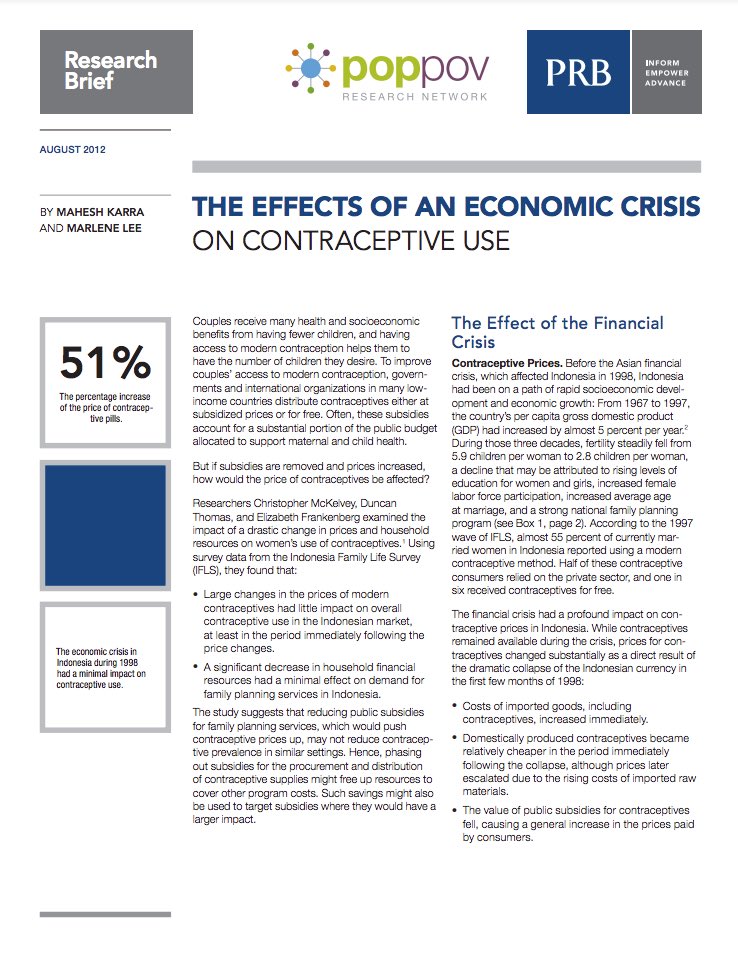
The Effects of an Economic Crisis on Contraceptive Use
(August 2012) Couples receive many health and socioeconomic benefits from having fewer children, and having access to modern contraception helps them to have the number of children they desire. To improve couples’ access to modern contraception, governments and international organizations in many low-income countries distribute contraceptives either at subsidized prices or for free. Often, these subsidies account for a substantial portion of the public budget allocated to support maternal and child health.
But if subsidies are removed and prices increased, how would the price of contraceptives be affected?
This PopPov network research brief summarizes the work of researchers Christopher McKelvey, Duncan Thomas, and Elizabeth Frankenberg, in examining the impact of a drastic change in prices and household resources on women’s use of contraceptives. They used survey data from the Indonesia Family Life Survey.
The PopPov Network makes research grants, supports dissertation fellows, sponsors meetings and workshops, and now provides an online space for the poppov research community. The goal of the network is to highlight the needs of the researchers, highlight state of the art methodologies, encourage and teach the next generation of researchers, and share ideas and communicate findings among the research community.
Mahesh Karra is a policy analyst in International Programs at PRB. Marlene Lee is program director for academic research and relations at PRB.

 ">
">